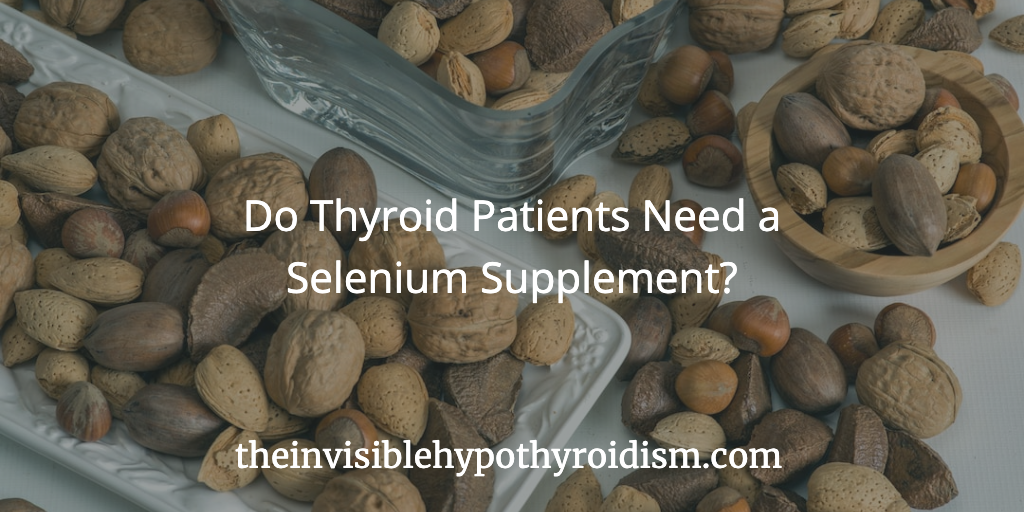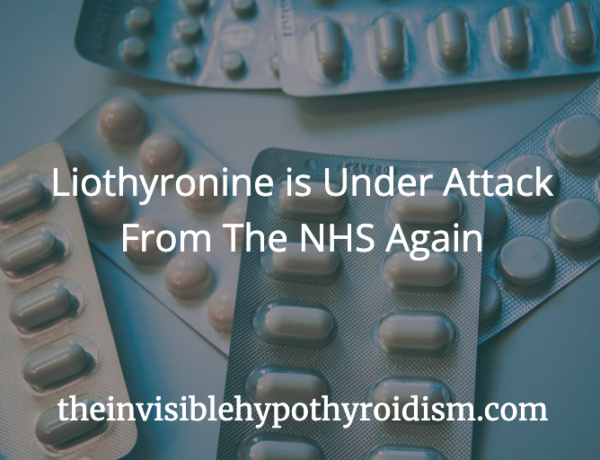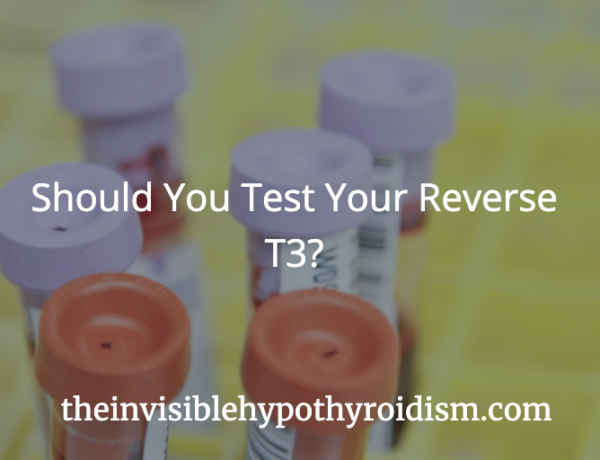Originally published on 20th May 2016 Last updated on 12th July 2023
Selenium is a trace mineral found in food and soil, which is vital for immune response and thyroid function, including conversion of thyroid hormone T4 to T3, making it essential for good metabolic function. It is often recommended that those of us with hypothyroidism and Hashimoto’s consider supplementing Selenium. So, should you?
Symptoms of Low Selenium Can Include:
- Fatigue
- Low immunity
- Poor concentration (brain fog)
- Fertility/reproductive issues
- Heart problems
However, selenium is not naturally occurring in the body, so we have to take it in via our diet and sometimes even supplementation.
Selenium is converted into one of three types of selenoprotein, which are:
- Gluthiaone Peroxidases -Antioxidants.
- Thioredoxin Reductases- Active in cell structure and growth.
- Iodothyronine Deiodinases – Responsible for the conversion of T4 to T3. (A reason why many thyroid patients still feel unwell on their thyroid medication.)
During times of selenium deficiency, you could have symptoms of brain fog and decreased cognitive functions, as well as lack of energy and blood results that look ‘OK’, even if you still feel unwell. You could also have low Free T3 levels.
Selenium for Conversion
A lot of people with hypothyroidism have trouble converting their T4 medication to the active thyroid hormone T3, so a lack of the protein iodothyronine deiodinases (which selenium is needed for) could be the reason. A sign being that if you’re on T4-only medication, such as Levothyroxine or Synthroid, and not feeling any better, especially if your thyroid blood test results look ‘OK’ or you’re low in Free T3, then you could be low or deficient in iodothyronine deiodinases, and therefore, selenium. Selenium is very important for conversion.
Selenium and Hashimoto’s
Research has also shown that selenium can lower thyroid antibodies, helping to manage Hashimoto’s more effectively. The study published in 2002 discussed selenium’s affect on thyroid antibodies. The researchers reported that they gave 200mcg of selenium on a daily basis to Hashimoto’s patients with high levels of TpoAB. After three months, their levels were redrawn and a decrease of the TpoAB value by 66.4% was found. [1]
This has certainly been the case for me, as my Hashimoto’s is now in remission and I still take my selenium supplement religiously, everyday.
How Much?
The NHS recommend a conservative 0.06mg a day for women and 0.075mg a day for men and Dr. Axe recommends no more than 0.055mg a day, which is more or less in line with NHS recommendations.
However, the recommended dose by many thyroid sources is 200mcg a day. The study mentioned above also used this amount.
As we don’t yet know the potential risks of long-term supplementation of Selenium, the safest option may be to meet requirements by eating selenium rich foods like: brazil nuts, cod, tuna, mushrooms and meats, however, getting the dosage right from food can prove tricky.
Brazil nuts are usually considered the most popular option, with just two to three of them a day apparently providing roughly 200mcg of selenium, but the amount of selenium in these nuts can vary a lot. Soil quality, size of the nuts and other factors influence the amount of selenium in each nut. It can be hard to determine if they contain enough, which is why so many people prefer to supplement instead.
If you do want to supplement, then organic forms of selenium, such as selenium yeast or selenomethionine, are said to be safer and more easily absorbed, and as with most supplements, selenium can have toxic effects when used in excess, so be aware. Symptoms of selenium toxicity include diarrhoea, hair loss and brittle nails.
If in doubt, test your selenium levels before you start supplementing, to ensure you don’t over-do it by taking too much and discuss taking any new supplements with your doctor.
Popular brands of selenium supplementation include:
Solgar Selenium (Yeast-Free) 200 µg Tablets – Pack of 250
Has supplementing selenium helped you?
You can click on the hyperlinks in the above post to learn more and see references to information given.
References:
[1] https://www.ncbi.nlm.nih.gov/pubmed/11932302




